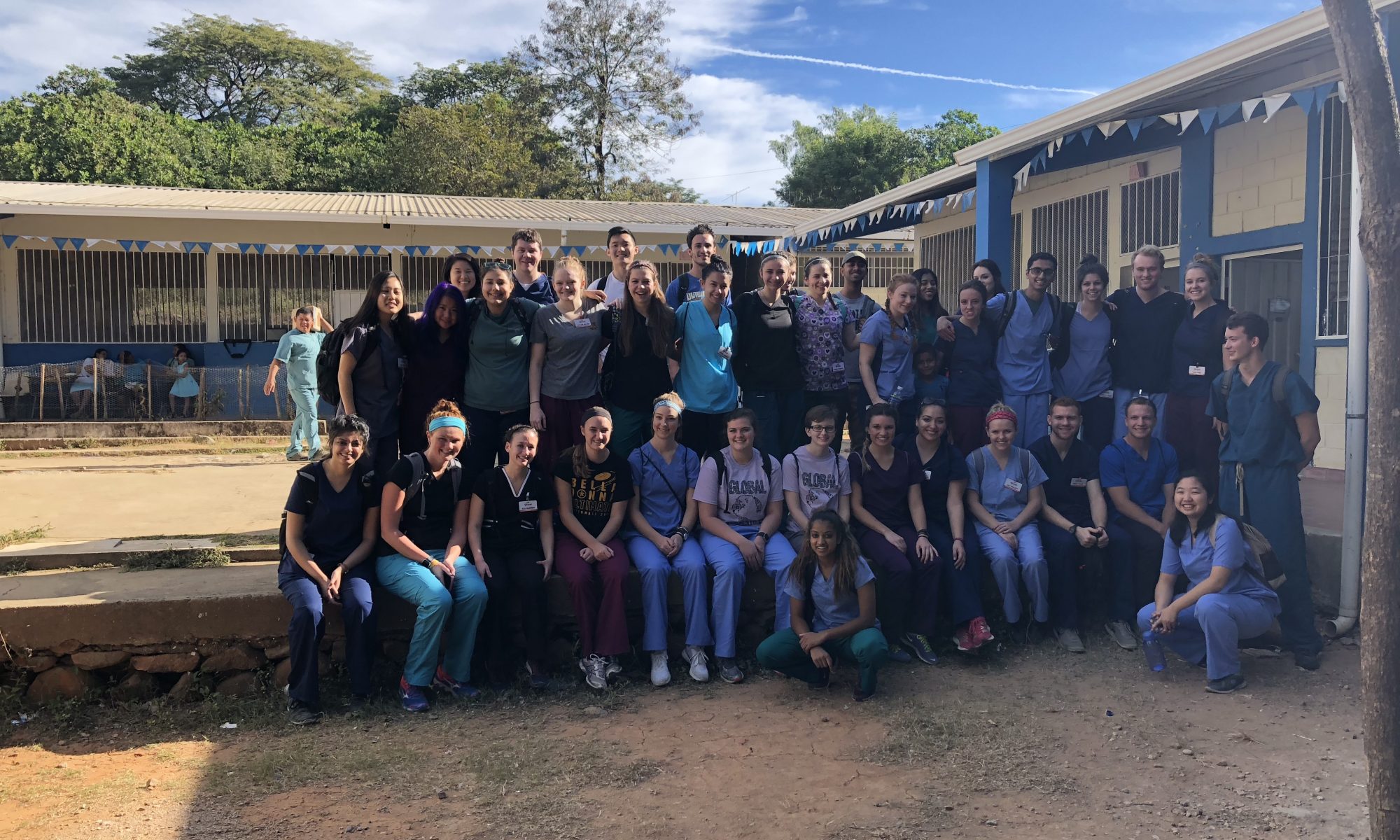A full brigade lasts 9 days* and includes medical and public health projects.
Brigaders will spend 3 days at a mobile clinic within a community, where they help perform a variety of tasks:
Station 1: Intake
Brigaders will work alongside community volunteers to create a profile for each patient by logging the date of visit, and patient name, age, gender, and community of residence. This data is transferred into an electronic medical record system that compiles each patient’s information, including the physician’s diagnoses and prescriptions that are documented at other stations.
Station 2: Triage
Brigaders will perform preliminary tests to determine patient vitals, including blood pressure, temperature, height, and weight. Volunteers will also record the patient’s medical history, including the chief complaints, family history, allergies, and current medication. Translators will be available to assist with communication, but this is a great opportunity to both practice and learn Spanish! After this information is documented, patients are then sent to the doctors for further consultation.
Station 3: Consultation
This is a great learning experience, as many patients are diagnosed with conditions that are uncommon in the United States. Brigaders that are proficient in Spanish will also have the opportunity to serve as medical translators.
Station 4: Dental
Brigaders will shadow licensed dentists as they perform teeth fillings and extractions, as well as assist in with preparing the surgical trays.
Station 5: Gynecology
Female patients may be directed to the gynecology station to receive pap smears or an IVAA test to check for cervical cancer. Female brigaders will have the opportunity to shadow the gynecologist and assist in these procedures.
Station 6: Pharmacy
Brigaders will sort and distribute medication to each patient based on what has been prescribed. This information, including type, dosage, and directions for each medication, is documented by physicians on the patient form that was filled out at the intake station.
Station 7: Charla
Brigaders provide educational workshops for children on oral hygiene, which are intended to empower participants to lead healthier lives. At the end of each workshop, brigaders distribute toothbrushes, toothpaste, and other hygiene products.
Brigaders will spent 1 day* visiting patient homes with trained Community Health Workers (CHWs). CHWs have been trained by Global Brigades staff to provide basic medical care and monitor chronic diseases for community members between brigades to ensure that the community has access to healthcare year-round.
Following the medical portion of the brigade, brigaders will spend 3 days constructing public health infrastructure projects within a community. Students will be divided into groups and work with local masons to assist families in building structures such as eco-stoves, latrines (bathrooms) with a septic tank, concrete floors, and pilas (water storage units). The lack of proper sanitary facilities in many homes results in respiratory illnesses and the spread of infectious diseases through pollution, contaminated water sources, and bacteria. Constructing these projects ensures that the risk of these preventable illnesses is significantly reduced.
*A 9-day brigade in Nicaragua will consist of 1 day dedicated to preparing medications, 3 days of medical clinics, 2 days of public health construction, and 1 day of a water project.
